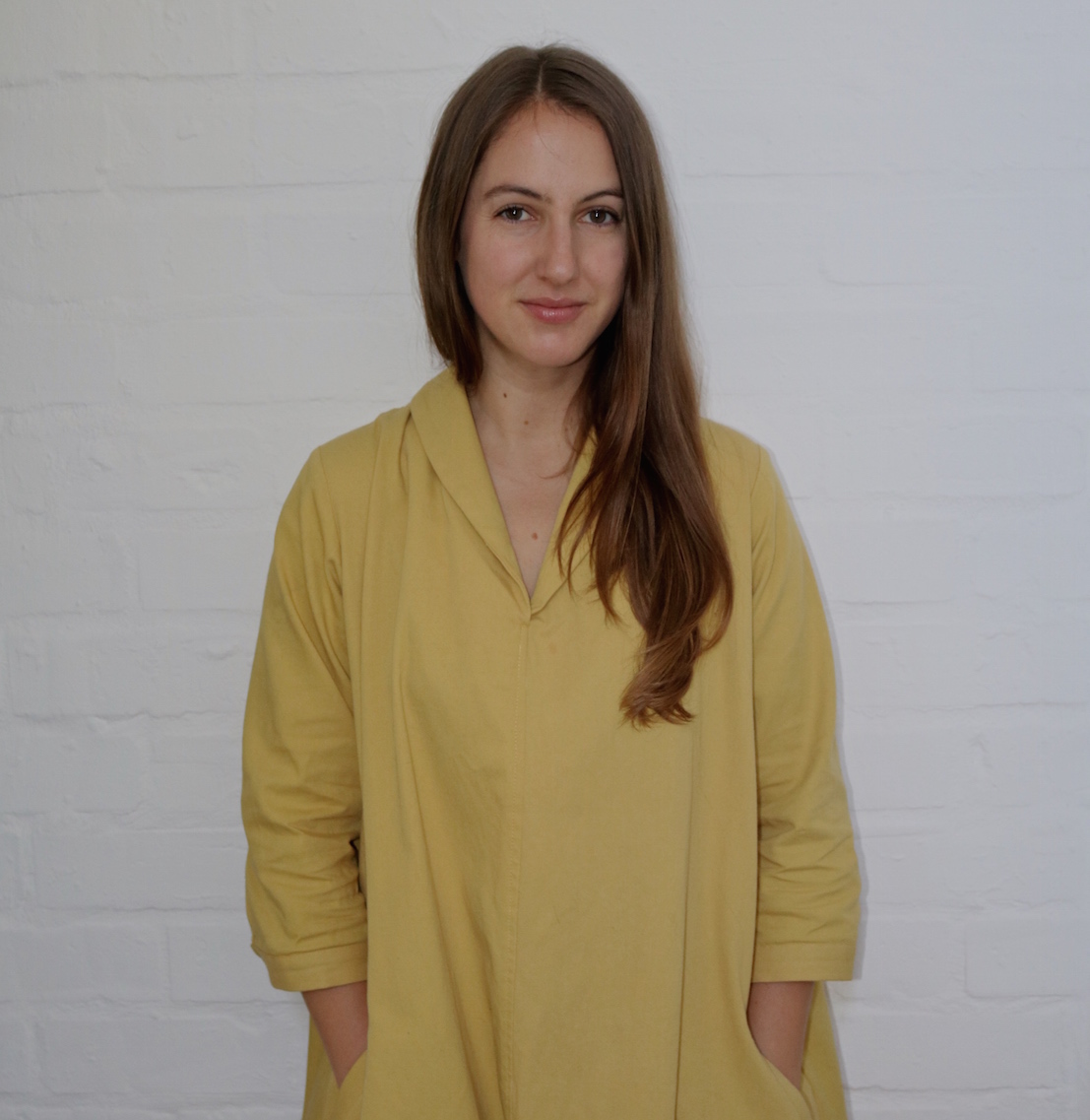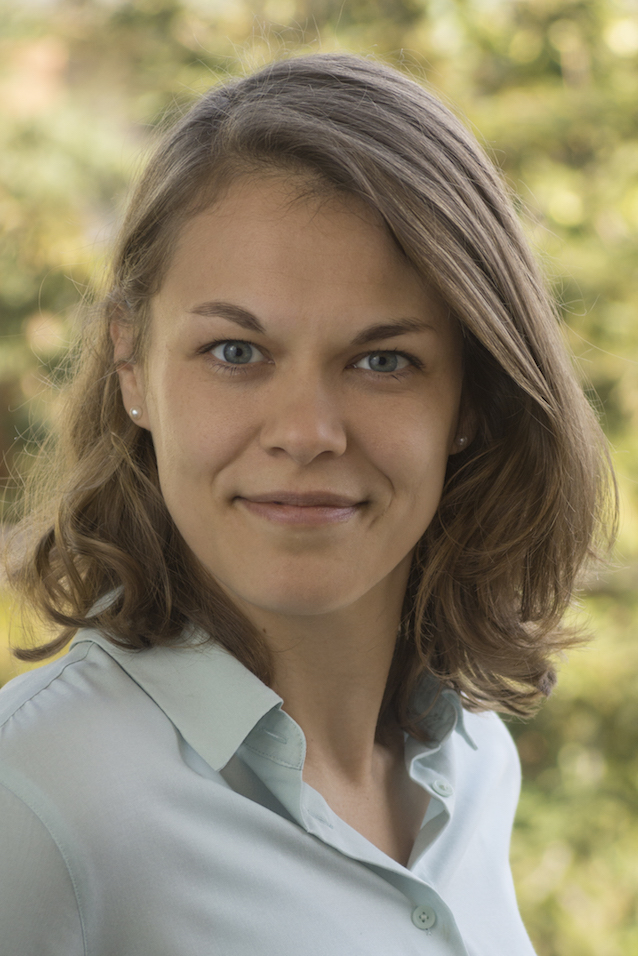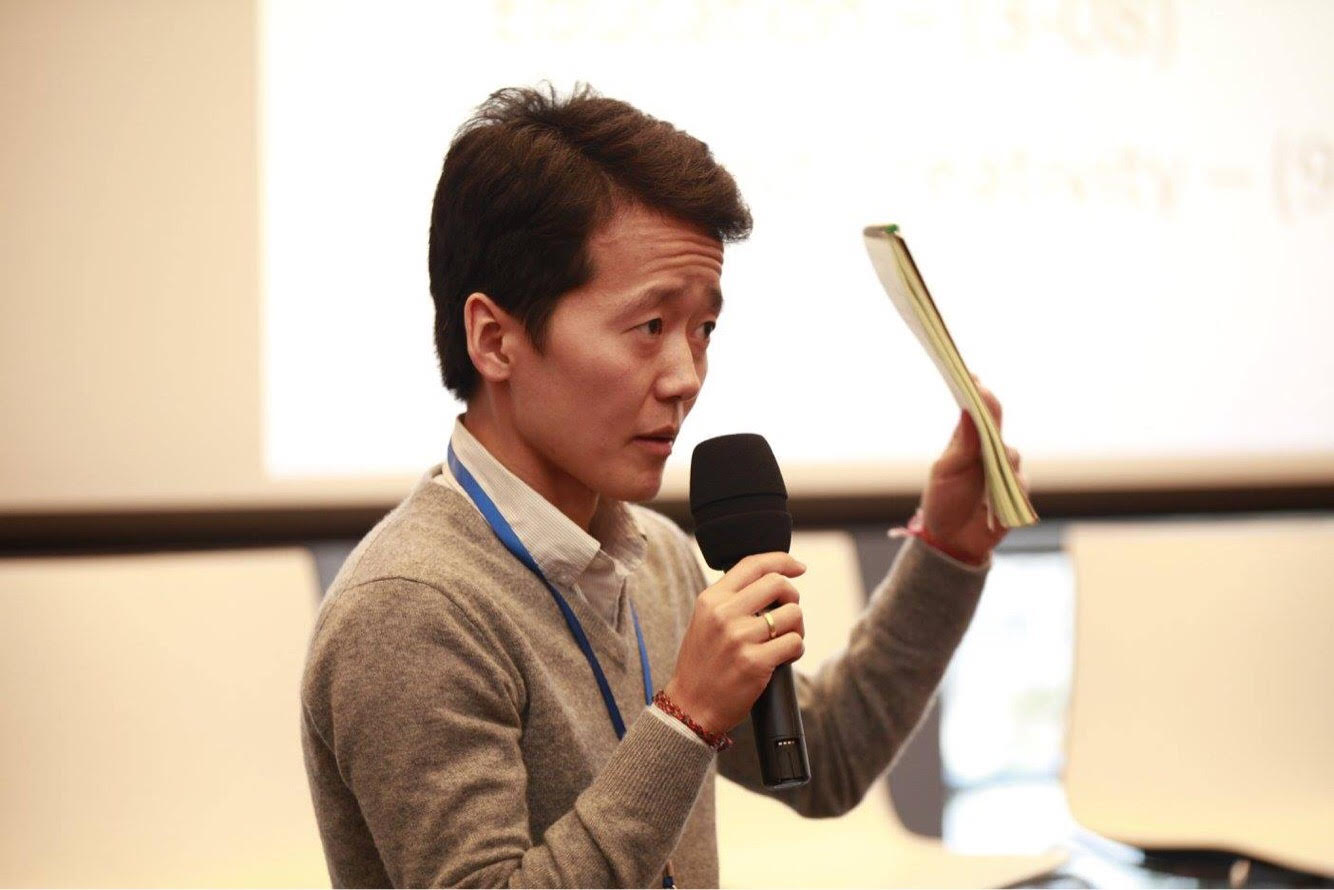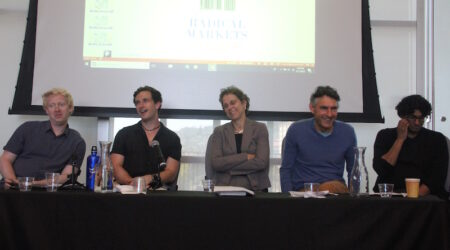Social Science Matrix is honored to welcome our 2018-2019 cohort of Matrix Dissertation Fellows, four Ph.D. candidates from different departments in the UC Berkeley Division of Social Science who are in the process of writing their dissertations. This year’s fellows—Brittany Birberick, Ingrid Haegele, Tenzin Mingyur Paldron, and Julia Nee—were selected from nominations submitted by their respective departments.
Matrix Dissertation Fellows receive up to $1000 in research funds and a space in the Matrix office, where they can work throughout the year alongside other fellows and staff members, Matrix-affiliated faculty, and visiting scholars, while also participating in Social Science Matrix-sponsored activities. Following are more detailed summaries of the research of the 2018-2019 Matrix Dissertation Fellows.
Brittany Birberick
 A doctoral candidate in the UC Berkeley Department of Anthropology, Brittany Birberick’s research focuses on factory spaces as key sites of urbanization, transformation, and development in Johannesburg, South Africa. She examines the multiple temporalities and migration that define the city in a moment of transformation.
A doctoral candidate in the UC Berkeley Department of Anthropology, Brittany Birberick’s research focuses on factory spaces as key sites of urbanization, transformation, and development in Johannesburg, South Africa. She examines the multiple temporalities and migration that define the city in a moment of transformation.
Based upon 18 months of fieldwork in Johannesburg, her dissertation project is centered primarily on a single street in Jeppestown, a peri-urban area to the east of Johannesburg’s city center. Jeppestown is portrayed as either on its way to becoming a site of redevelopment by the Johannesburg Development Agency, artists, and private developers, or a crime-ridden area and hotbed of Zulu ethnic-nationalism—an area that will either successfully be re-developed or descend into further dilapidation, violence, and crime.
Her research examines the factory spaces that remain and how they are being remade in this liminal space: factories owned by older white South African men who developers are eager to buy out; a black owned factory, which is the largest in the area but struggles with break-ins and xenophobic violence; a recently established factory that makes shoes sold in nearby stores – stores owned by an Indian-South African family that has had a clothing store on the street since the early 1900s; and an old furniture factory that has been an informal settlement since the 1990s.
Ingrid Haegele

A PhD Student in the UC Berkeley Department of Economics, Ingrid Haegele is applying leading-edge methods to study discrimination in modern labor markets.
“A large body of previous research has illustrated substantial disadvantages for women, minorities, and immigrant groups in the labor market, particularly in terms of representation and compensation,” she explains. “However, evidence on underlying mechanisms and on potential policy interventions that could promote diversity in the workplace is scarce. In my research, I aim to overcome this challenge by combining traditional insights from labor economics with practical knowledge about the workplace as well as cutting-edge statistical tools.”
For her current project, she is collecting a unique dataset in close collaboration with a large, multinational company. “These novel data will allow for an innovative analysis of career patterns as well as hiring and promotion practices within the company,” she says. “I plan to develop a method to automatically detect patterns in the data that can tell us when employees experience systematic roadblocks in their career development. I hope to leverage the novel dataset I am collecting in order to detect what factors are driving these patterns, for instance whether bottlenecks exist due to a lack of qualified applicants or due to distorted selection rules. The goal is then to test which changes to human resources practices can help to promote diversity.”
Haegele originally came to Berkeley as an exchange student in 2015, when she was enrolled in a Master’s program in Munich, Germany. “I quickly fell in love with the the campus community and the Economics department at Berkeley and immediately applied to the PhD program,” she says.
Tenzin Mingyur Paldron
 A PhD candidate in Rhetoric with a designated emphasis in women, gender, and sexuality. Tenzin Mingyur Paldron was born in India and raised in the United States. He is the author of Nïngtam, a goodwill initiative that encourages respectful dialogue and learning on the subject of gender expression and sexuality as relevant to Tibetans. He is a recipient of the Dolores Zohrab Liebmann Fellowship, the Magistretti Fellowship in Asian Languages, Cultures, History, and Society, and the Eugene Cota-Robles Fellowship.
A PhD candidate in Rhetoric with a designated emphasis in women, gender, and sexuality. Tenzin Mingyur Paldron was born in India and raised in the United States. He is the author of Nïngtam, a goodwill initiative that encourages respectful dialogue and learning on the subject of gender expression and sexuality as relevant to Tibetans. He is a recipient of the Dolores Zohrab Liebmann Fellowship, the Magistretti Fellowship in Asian Languages, Cultures, History, and Society, and the Eugene Cota-Robles Fellowship.
His dissertation, Falling through the sky: Self-immolation and the limits of understanding, asks “what insight may be lost in the ubiquitous tendency to interpret self-immolation as either illness or protest, affliction or strategy,” he explains. “Using a letter penned to Martin Luther King, Jr. as my first analytical frame through which to consider particular cases of self-immolation, I approach self-suffering and its circumstance in three iterations—the Oedipus drama, Genesis 22, and a Buddhist fable. I also inquire into the link between speech, silence, and social change by drawing the letter, Kierkegaard’s reading of Genesis 22, and the LGBT rights movement into an arrangement that allows for an address of certain American norms. One of my motivations for pursuing these two threads is because I think they can lend value to some of the complex socio-political situations of the current era.”
Julia Nee
 Julia Nee is a fourth-year PhD student in the Linguistics department. After finishing her BA in linguistics at the University of Chicago, she moved to Oaxaca, Mexico to teach English before returning to the U.S. to continue her education. During her time in Mexico, she began to study Teotitlán del Valle Zapotec, an indigenous language spoken outside of Oaxaca City. Her research now centers on language documentation and revitalization of this variety of Zapotec. When she is not working, she enjoys long-distance running, traveling on her bicycle, and getting lost in the woods.
Julia Nee is a fourth-year PhD student in the Linguistics department. After finishing her BA in linguistics at the University of Chicago, she moved to Oaxaca, Mexico to teach English before returning to the U.S. to continue her education. During her time in Mexico, she began to study Teotitlán del Valle Zapotec, an indigenous language spoken outside of Oaxaca City. Her research now centers on language documentation and revitalization of this variety of Zapotec. When she is not working, she enjoys long-distance running, traveling on her bicycle, and getting lost in the woods.
“My research centers on the development, implementation, and evaluation of language revitalization programs,” she says. “I work with speakers of Zapotec in Teotitlán del Valle in southern Mexico to develop and implement language documentation and revitalization efforts within the community. In my dissertation, I develop, implement, and evaluate an intensive Zapotec biannual language camp for children ages 5 to 12 in Teotitlán del Valle, Oaxaca. The goals of this project are three-fold: to create a communication-based course that incorporates content that is socio-culturally relevant for learners of Zapotec in Teotitlán; to evaluate the outcomes of that course; and to generalize these findings to provide a realistic guide of best practices and possible outcomes that can be used as a tool by others hoping to run language camps for endangered languages.”
“My research involves discussion and collaboration with researchers, teachers, and language activists to understand how my evaluation techniques can be made applicable in a wide range of communities to allow for comparison of outcomes between programs for different languages. Taking in perspectives from other language teachers and fieldworkers allows me to design evaluation measures that are applicable in other situations so that data collected for different language programs can be compared. With these evaluation strategies, it is my hope that teachers, language activists, and linguists will be better able to understand the possible outcomes of language camps and plan future revitalization in ways that effectively works toward community goals.”



